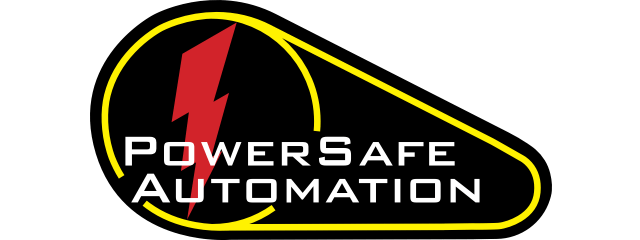Introduction: Why Functional Safety Certification Matters
In today’s manufacturing, energy, automotive, and industrial automation sectors, safety and reliability are not optional—they are requirements. Companies face increasing pressure from regulatory agencies, customers, and internal risk management teams to demonstrate compliance with the highest global standards. One certification that consistently stands out is TÜV Rheinland Certified Functional Safety Engineer (CFSE or FS Engineer).
This certification is recognized worldwide as proof of deep technical knowledge, risk analysis expertise, and practical understanding of international safety standards such as IEC 61508, ISO 13849, IEC 62061, and industry-specific standards for machinery, automotive, and process safety.
For customers, working with TÜV-certified engineers means confidence that systems are designed, validated, and maintained with safety at the forefront. For suppliers, it builds credibility, reduces liability, and enhances competitiveness.
What Is Functional Safety?
Functional safety is a discipline within safety engineering that focuses on ensuring systems and machinery operate correctly in response to inputs—even when failures occur. Unlike general safety, which may address physical safeguards such as barriers or PPE, functional safety ensures that automated safety systems (like emergency stops, interlocks, or fail-safes) function as intended to prevent hazards.
Key principles of functional safety include:
-
Hazard and risk analysis – Identifying potential sources of harm and quantifying risks.
-
Safety Integrity Levels (SIL) – Defining performance requirements for safety systems.
-
Lifecycle approach – Ensuring safety is considered from design through decommissioning.
-
Validation and verification – Proving systems operate correctly under all foreseeable conditions.
What Does TÜV Rheinland Certification Mean?
TÜV Rheinland is one of the world’s most respected independent testing and certification bodies. When an engineer holds a TÜV Rheinland Functional Safety Engineer certification, it means they have successfully completed rigorous training and passed examinations proving their expertise in international safety standards.
Key features of TÜV Rheinland certification:
-
Global recognition – Trusted across Europe, North America, and Asia.
-
Standards-based – Aligned with IEC 61508 (the umbrella standard for functional safety).
-
Industry specialization – Machinery, process, automotive, and more.
-
Continued education – Certified professionals must maintain up-to-date knowledge.
Benefits for Customers
1. Confidence in Compliance
Customers working with TÜV-certified safety engineers can rest assured that designs comply with international safety standards. This reduces the risk of fines, shutdowns, or rejected audits from OSHA, ANSI, CE, or ISO authorities.
2. Reduced Risk of Downtime
Properly designed safety systems reduce accidents and unplanned stoppages. Functional safety engineers ensure safeguards do not unnecessarily interrupt production, striking the right balance between safety and productivity.
3. Improved Worker Safety
With certified expertise applied to safety system design, customers benefit from lower injury rates, which improves employee morale, reduces insurance costs, and strengthens a culture of safety.
4. Lower Long-Term Costs
Though upfront investment in certified expertise may seem higher, it pays off by preventing costly redesigns, regulatory fines, or lawsuits following incidents.
Benefits for Suppliers
1. Market Differentiation
Suppliers who employ TÜV-certified engineers instantly stand out as trusted partners. In a competitive market, being able to demonstrate internationally recognized credentials gives customers confidence.
2. Reduced Liability Exposure
By adhering to globally accepted safety standards, suppliers reduce their risk of being held liable in the event of an accident. Documentation from TÜV-certified processes provides a strong legal defense.
3. Faster Approvals and Acceptance
When presenting systems or components to multinational customers, TÜV certification can speed up approval cycles since many corporations mandate or prefer certified safety processes.
4. Enhanced Reputation
Having TÜV-certified personnel on staff signals commitment to quality, reliability, and safety leadership, strengthening long-term customer relationships.
TÜV Certification vs. Non-Certified Safety Engineering
It is possible to hire an engineer without TÜV Rheinland certification, but the differences are significant:
| Aspect | TÜV Rheinland Certified Engineer | Non-Certified Engineer |
|---|---|---|
| Knowledge Depth | Formal, standardized training on IEC/ISO safety standards | May vary by individual experience |
| Global Recognition | Accepted worldwide across industries | Local or company-specific credibility |
| Documentation | Proven lifecycle safety approach | Risk of inconsistent documentation |
| Compliance Assurance | Built-in assurance of global standards | Higher risk of failing audits |
| Risk for Customers | Lower, due to structured methodologies | Higher, due to variability in knowledge |
How TÜV-Certified Engineers Work With Customers
-
Assessment and Risk Analysis – Identifying hazards, estimating risk levels, and ranking corrective actions.
-
Safety System Design – Applying appropriate SIL/PL levels and redundancies.
-
Implementation – Collaborating with mechanical, electrical, and software engineers.
-
Verification and Validation – Testing and confirming compliance.
-
Documentation and Training – Providing customers with clear records and training materials.
Key Industries That Benefit
-
Manufacturing & Machinery – Protecting operators and technicians with interlocks, light curtains, and safety relays.
-
Automotive – Ensuring functional safety in advanced driver-assistance systems (ADAS).
-
Oil, Gas, and Chemicals – Managing hazardous process environments with SIL-rated safety systems.
-
Pharmaceuticals & Food – Preventing contamination or injury in high-speed packaging lines.
-
Energy & Utilities – Safeguarding critical control systems in power plants and renewable energy.
Real-World Example
A multinational automotive manufacturer required compliance with ISO 26262 for electronic control units. By engaging TÜV-certified functional safety engineers, the supplier was able to:
-
Design systems meeting ASIL-D (the highest risk classification).
-
Pass customer audits on the first attempt.
-
Reduce warranty claims by ensuring fail-safe mechanisms were robust.
The result was both financial savings and stronger trust between customer and supplier.
Why TÜV Rheinland Certification Builds Trust
At its core, the value of TÜV certification is trust. Customers know that suppliers have invested in internationally recognized training and that engineers will not cut corners. Suppliers know they are competing on quality rather than cost alone.
Trust reduces negotiation friction, speeds up project cycles, and creates long-term partnerships.
SEO Keywords to Target
-
TÜV Rheinland Functional Safety Engineer
-
Functional safety certification benefits
-
TÜV certified safety engineering
-
Functional safety compliance IEC 61508
-
Safety Integrity Level (SIL) engineering
-
Machinery and process safety certification
-
Benefits for customers and suppliers safety
Conclusion
TÜV Rheinland Certified Functional Safety Engineering is more than a credential—it is a globally respected guarantee of safety, compliance, and technical excellence. For customers, it provides confidence, compliance, and reduced risks. For suppliers, it delivers credibility, market advantage, and reduced liability.
In an industrial world where safety failures are costly, TÜV Rheinland certification bridges the gap between technical safety requirements and practical implementation. Choosing to work with certified engineers ensures that both customers and suppliers are positioned for safety, efficiency, and long-term success.



